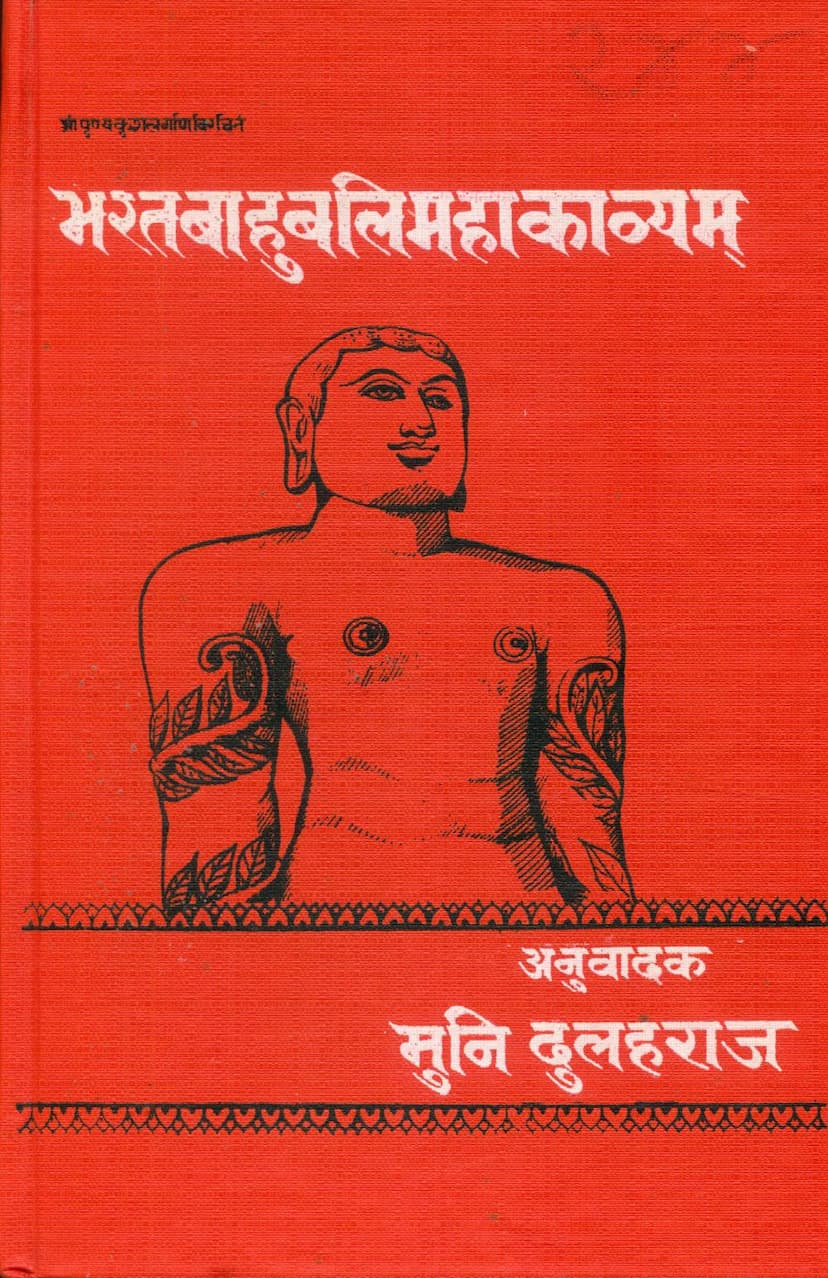Bharat Bahubali Mahakavyam
Added to library: September 1, 2025

Summary
This summary focuses on the core narrative and structure of the "Bharat Bahubali Mahakavyam" based on the provided text.
Summary of "Bharat Bahubali Mahakavyam"
The "Bharat Bahubali Mahakavyam," authored by Dulahrajmuni and published by Jain Vishwa Bharati, is an epic poem that recounts the story of the conflict and eventual spiritual resolution between two brothers, Bharat and Bahubali, sons of the first Tirthankara, Lord Rishabhnath.
Key Aspects and Narrative:
-
The Core Story: The epic centers on Emperor Bharat's desire for the complete submission of his younger brother, Bahubali, who rules the province of Bahu-desh. After conquering six parts of the continent, Bharat finds Bahubali's territory still outside his domain.
-
The Embassy: Bharat dispatches his skilled minister, Suveg, to Bahubali with a message demanding his allegiance. Suveg's journey to Bahubali's kingdom, Takshashila, is described in detail, highlighting the prosperity, natural beauty, and righteous rule of Bahubali's land.
-
Bahubali's Reaction: Upon meeting Bahubali, Suveg is awestruck by his presence and the aura of his kingdom. Bahubali, although initially affected by the tales of his elder brother Bharat's might, recalls his own youthful innocence and the close bond he shared with Bharat, subtly expressing a desire for reconciliation.
-
The Message and Its Impact: Suveg conveys Bharat's message, which emphasizes Bharat's vast empire and the submission of all other kings, urging Bahubali to accept his suzerainty. The news of Bharat's overwhelming power and the subjugation of other rulers is conveyed, highlighting that only Bahubali remains outside Bharat's dominion. This message, delivered with diplomatic skill, aims to persuade Bahubali to yield without further conflict.
-
Escalation and Conflict: Despite the initial discussions and some nostalgic reflections on their childhood, the core issue of political submission remains unresolved. The narrative describes the preparations for war, the mobilization of armies, and the growing tension between the two brothers.
-
The Four Types of Combat: The epic details a unique four-stage conflict devised by the gods to resolve the dispute without excessive bloodshed. These stages are:
- Drishti Yuddha (Visual Combat): A contest of intense gazing.
- Shabda Yuddha (Verbal Combat): A battle of roars and challenging words.
- Mushti Yuddha (Fist Combat): A physical fight using fists and strength.
- Danda Yuddha (Mace Combat): A duel using maces.
-
Bahubali's Renunciation: After decisively winning the first three stages of the conflict and causing significant physical distress to Bharat in the third, Bahubali witnesses the immense destruction and suffering caused by their actions. He realizes the futility of worldly power and the fleeting nature of life. Overwhelmed by a sense of detachment and spiritual awakening, Bahubali renounces his kingdom, his ego, and embraces the path of asceticism, becoming a mendicant under Lord Rishabhnath's teachings.
-
Bharat's Realization and Subsequent Enlightenment: Bharat, witnessing Bahubali's profound spiritual transformation, is deeply moved. He, too, reflects on the vanity of worldly power and attachment. He relinquishes his vast empire, embraces the path of spiritual discipline, and eventually attains Kevala Jnana (omniscience), the highest spiritual attainment in Jainism.
-
Divine Intervention and Guidance: The text often portrays celestial beings (Devas) intervening to guide the brothers towards peace and spiritual understanding, emphasizing the importance of righteousness and detachment.
-
Literary Style and Structure: The poem is structured into eighteen cantos (Sargas). The text highlights the elaborate descriptions of nature, armies, battles, and emotional states of the characters. The language is characterized as graceful and artistic, employing various poetic meters (chhandas) and figures of speech (alankaras). The translation into Hindi is noted for its clarity and adherence to the original's spirit.
Significance:
The "Bharat Bahubali Mahakavyam" serves as a spiritual allegory. It illustrates the Jain principles of Ahimsa (non-violence), detachment from worldly possessions and ego, the pursuit of spiritual knowledge, and the ultimate attainment of liberation (Moksha). The story of Bharat and Bahubali is a powerful testament to the triumph of spiritual realization over ego and worldly ambition.